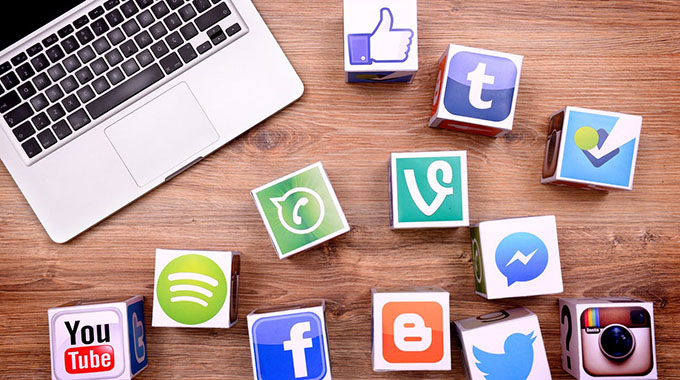Let’s embrace social media

Ngonidzashe Taruvinga Correspondent
No matter how we feel about social media, it has become embedded in our daily lives and can be used for the good to benefit people in different social backgrounds and settings.
From enhancing business marketing strategies, raising social awareness campaigns, and to the extent of selling facial beauty products on platforms such as Twitter and Instagram.
Social media has become one of the most used informative tools in our daily lives.
Due to the increasing integration of social media in people’s daily activities, local entrepreneurs have seen the opportunity and taken the opportunity to market their products and services through Instagram, Facebook and Twitter.
Businesses such as @Kravingsbaking, a small baking company by one local Zimbabwean on Twitter is flourishing tremendously.
Through the Twitter handle, the company markets its products and showcases its baking artistry, resulting in followers being enticed by cakes, which has made it easy for the business owner to source out an easy market and sell the products online.
After following the account and analysing its simple, but effective marketing strategy, one can’t help noticing how effective use of this platform has grown the business and improved its recognition within its followers’ sphere and nationally.
This is another excellent method for creating endless relations between customers and service providers as it becomes easy to keep a track record of your clients, their desired products’ quantity and quality.
Zimbabwe’s eastern region was severely affected by Cyclone Idai in March last year which resulted in the loss of hundreds of lives.
Many Zimbabweans locally and abroad, as well as the international community only managed to understand the magnitude of the cyclone’s devastating effects through social media platforms mainly Instagram and Twitter; thanks to the users who captured photographs of the affected areas and shared them with their followers as a way of raising awareness of the natural disaster.
As a result, online campaigns such as #RebuildTogether on Twitter were created to assist the victims in rebuilding their shattered lives.
The United Nations’ World Food Programme’s Global Logistics Cluster disseminated their food logistics projects via Twitter which allowed them to assess how aid was being distributed to the cyclone victims, giving in-depth information on the affected areas, number of victims and possible routes to use for aid distribution.
Social media acts as the easiest and quickest method of informing people globally about issues of importance.
We need social media in our lives, and it is slowly becoming one of the elements on the pyramid of the hierarchy of human needs.
There is, however, a minor or to some extent, a major pitfall of social media depending on factors such as accessibility and time management, and that is addiction and negligent use of the platforms.
Vice President Constantino Chiwenga is on record as saying that social media users have reached the point of abusing it by intimidating one another and mobilising youths to engage in unruly behaviour.
Twitter and Facebook can be used by arrogant followers, causing one to become perpetually mortified while reading some tweets and posts on one’s timeline filled with hate speech.
The best way to avoid such is by simply unfollowing those users involved in disseminating that information.
The downside to this, though, is that one may still come across retweeted or shared posts that they may be avoiding.
However, this cannot stop someone from using social media because it is now part and parcel of our daily lives.
We all need it to be well informed about our surroundings and interact with one another 24/7. Like it or hate it, social media is now the best way to communicate, although it requires ethical use.








Comments